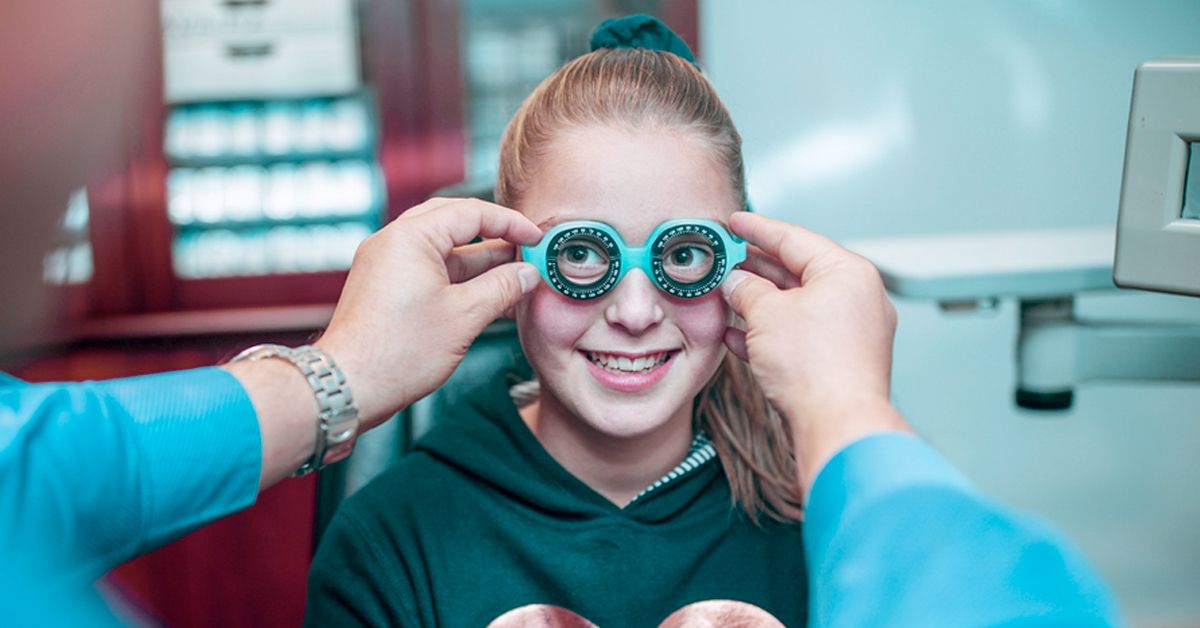Leading Cardiologist Andalusia: Your Partner in Heart Health
Is Refractive Surgical Procedure Right for You? Elements to Think About for Better Eyecare
In the realm of eye care, the decision to go through refractive surgical procedure is a weighty one that demands thoughtful consideration. From the intricacies of one's ocular health to the intricacies of daily practices and personal expectations, each aspect holds importance in the wider landscape of refractive surgical treatment candidacy.
Eye Health And Wellness Examination
When considering refractive surgery, an extensive eye health examination is vital to analyze the viability of the treatment for each and every person. andalusia pediatrics. This analysis involves a collection of examinations and tests conducted by an eye care specialist to establish the total health of the eyes, the visibility of any kind of hidden problems, and the stability of the refractive error
During the evaluation, various factors are considered, such as the patient's case history, current eye prescription, corneal density, student size, and tear movie high quality. These evaluations help to recognize any type of contraindications to refractive surgery, such as corneal abnormalities, cataracts, or unattended eye infections. In addition, the assessment aids to manage individual expectations pertaining to the potential results of the surgery based upon their unique eye attributes.
Ultimately, the eye health and wellness analysis is vital in making certain the security and efficiency of refractive surgical procedure, as it offers valuable insights into the person's eye health condition and aids identify one of the most suitable therapy options for attaining ideal aesthetic results. (andalusia pediatrics)
Way Of Living Assessment
A complete way of life analysis is integral in determining the viability of refractive surgery for a person's aesthetic correction requirements. Way of life variables such as line of work, hobbies, and day-to-day tasks play a critical function in the decision-making procedure relating to refractive surgery.
In addition, way of living behaviors such as sporting activities participation, outside tasks, or even skin care routines can influence the recovery process and total success of refractive surgical treatment. People that engage in get in touch with sporting activities might need to take added safety measures to shield their eyes during the recuperation duration. Additionally, people with considerable sun direct exposure might require added post-operative like avoid difficulties. By performing a thorough way of life assessment, eye care specialists can tailor their referrals and treatment plans to meet the distinct needs of each client, eventually causing enhanced aesthetic results and contentment.
Assumption Positioning

People need to understand that while numerous people achieve 20/20 vision or much better following refractive surgical procedure, some may still need glasses for certain tasks like reading or driving at night. Taking care of these expectations aids avoid dissatisfaction and discontentment post-surgery, leading to a more favorable total experience for the individual.
Risk Evaluation

Variables that might enhance the threat of issues consist of age, certain clinical conditions like autoimmune conditions, unsteady vision prescription, slim corneas, and impractical patient expectations. Additionally, selecting a seasoned and experienced specialist, adhering to pre and post-operative care directions diligently, and disclosing any type of pertinent clinical background can help reduce dangers.
To decrease the likelihood of problems, eye doctors perform extensive pre-operative analyses to recognize any contraindications to surgery. They likewise go over the possible threats and advantages with people during the consultation process. By taking part in open communication and shared decision-making, both the ophthalmologist and the patient can interact to identify if refractive surgery is the best option based upon specific danger profiles and preferred end results.
Examination Relevance
Taking into consideration the critical duty of educated decision-making in analyzing threats and possible problems in refractive surgery, the consultation procedure holds substantial value in directing clients towards optimum end results. During the assessment, the ophthalmologist reviews the person's eye health and wellness, refractive errors, and overall viability for surgical procedure. This preliminary assessment is essential in determining one of the most appropriate procedure for each person, thinking about aspects such as corneal thickness, pupil dimension, and existing eye problems.
Additionally, the examination serves as a possibility for people to discuss their expectations, problems, and any kind of concerns they may have concerning the surgical procedure. Clear interaction between the specialist and the patient is important to make sure reasonable assumptions and a detailed understanding of the possible dangers and benefits included.
Additionally, the appointment enables the surgeon to describe the different medical options readily available, their particular end results, and the post-operative care needed. This thorough discussion equips here clients to make educated decisions concerning their eye care, causing far better complete satisfaction and end results post-surgery.
Conclusion
In verdict, individuals thinking about refractive surgery needs to undergo an extensive eye wellness evaluation, assess their lifestyle practices, align their expectations with prospective end results, assess the associated risks, and prioritize examinations with eye treatment specialists. These variables play an essential function in identifying the suitability of refractive surgical treatment for every individual, making sure ideal results and fulfillment with the treatment.
Individuals thinking about refractive surgical treatment typically have high expectations concerning the outcomes, expecting ideal vision without the need for glasses or contact lenses. While refractive surgery can significantly improve vision and decrease dependency on aesthetic aids, it is essential webpage for clients to understand that results might differ based on private factors such as the level of refractive error, corneal density, and general eye health and wellness.
By involving in open communication and shared decision-making, both the person and the eye doctor can work with each other to establish if refractive surgical procedure is the ideal choice their explanation based on specific danger profiles and wanted results.
Considering the critical duty of notified decision-making in assessing threats and prospective complications in refractive surgical treatment, the examination process holds considerable significance in leading clients in the direction of ideal outcomes. Throughout the consultation, the eye doctor evaluates the person's eye health and wellness, refractive errors, and total suitability for surgery.